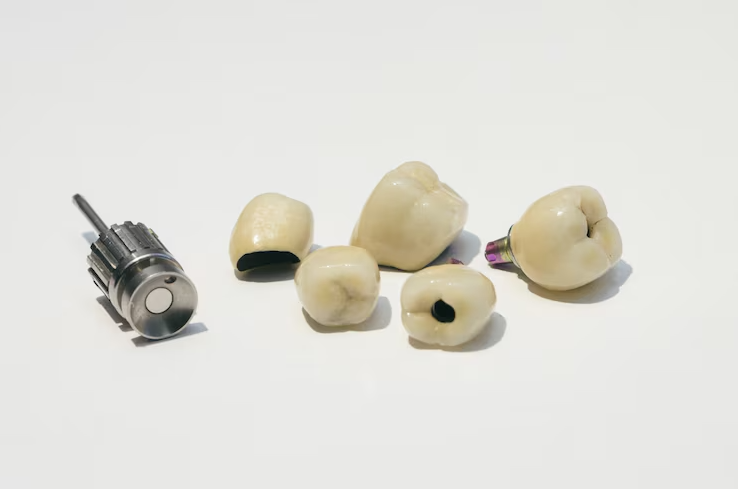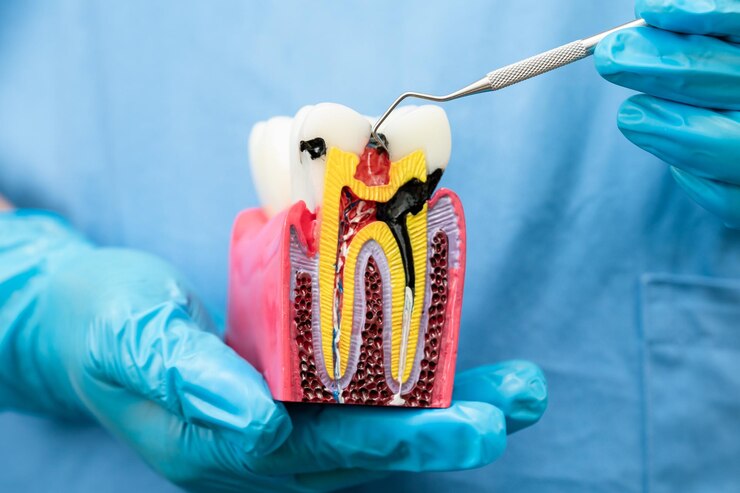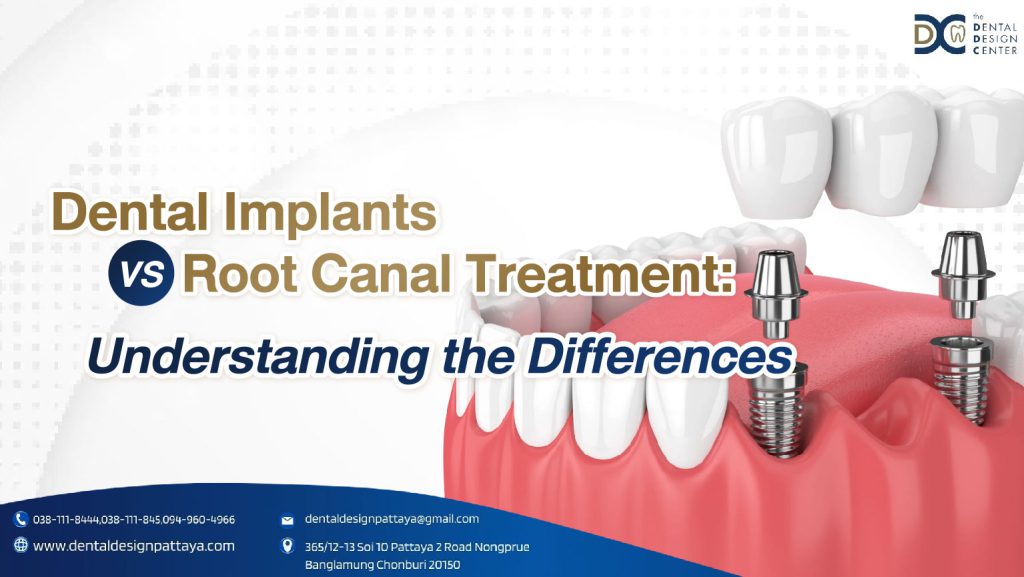Many people mistakenly believe that dental implants and root canals are the same thing. While these two treatments may seem similar, they are actually quite different in terms of technique, purpose, and the overall procedure.
What are Dental Implants
Dental implants are a treatment to replace missing teeth due to accidents, decay, or other dental issues. They are made of titanium, a biocompatible material that closely resembles natural tooth roots. Dental implants function as artificial tooth roots, providing a strong foundation for crowns, bridges, or dentures. However, if a patient has insufficient gum tissue or jawbone, a bone graft may be necessary before implant placement.
Types of Dental Implants

- Single-tooth implants: These are used to replace a single missing tooth. In some cases, they can also be used to replace multiple non-adjacent teeth.
- Multiple-tooth implants: When multiple teeth are missing in a row, dental implants can be used in conjunction with dental bridges to restore the entire area.
- Full-mouth implants: For patients who are missing all of their teeth, full-mouth implants can be placed to support a complete denture. Implants are strategically placed along the upper and lower jawbones to provide a stable foundation for the denture.
What is root canal treatment
Root canal treatment is a procedure to restore and save a damaged tooth root. The process begins with cleaning the tooth’s pulp chamber and removing infected tissue. Then, the root canal is filled and the tooth is repaired to return it to normal condition. Patients who undergo this treatment can resume normal use of the tooth. However, in the initial period after treatment, it’s advisable to avoid hard foods as they may risk impacting the treated root.
What types of teeth require root canal treatment

Typically, dentists examine the condition of patients’ teeth and roots before any treatment to assess the dental condition and determine the appropriate treatment method. However, here are some ways to observe your own teeth to determine if root canal treatment might be necessary:
- Deep Cavity Reaching the Pulp Natural permanent teeth with cavities that reach the pulp, if left untreated, can lead to spreading infections and potentially affect the eyes. If you know you have a cavity, you should seek immediate dental care.
- Discolored Teeth Teeth that have abnormally changed color may indicate a dead tooth, a condition where the tissue is damaged due to lack of blood supply. If left untreated for a long time, it can lead to infection and abscess formation. It can also affect taste buds.
- Cracked Teeth Cracks in teeth can occur for various reasons, including accidents or tooth brushing. Aggressive brushing can affect the tooth neck, causing wear and leading to tooth sensitivity. If a crack appears on a tooth, it’s advisable to get a dental filling immediately to prevent potential worsening of damage in the future.
- Teeth with Abscesses Teeth with abscesses are often caused by swollen gums. The longer this condition is left untreated, the higher the risk of severe infection spreading.”
Dental Implants vs Root Canals: What’s the Difference
Dental implants involve removing a damaged tooth and replacing it with an artificial root made of a strong, biocompatible material that closely resembles a natural tooth. Dental implants provide a durable and long-lasting solution that can function just like a natural tooth.
On the other hand, root canal treatment is a procedure to save a damaged tooth by removing the infected pulp and sealing the root canals. The natural tooth is preserved, and there is no need for a replacement tooth.
Conclusion
Dental implants require the removal of a damaged tooth and its replacement with an artificial root. This implant serves as a replacement for the natural root, providing a strong foundation for a crown or bridge. On the other hand, root canal treatment aims to save a natural tooth by removing the infected pulp and sealing the root canals. The natural tooth is preserved, and there is no need for a replacement.
If you have concerns about your oral health and would like to consult with an experienced dental professional, please contact the Dental Design Center. We are Pattaya dental, offer a comprehensive range of dental services and are committed to providing personalized care and exceptional results. You can contact us directly through our clinic website or call 094-960-4966

